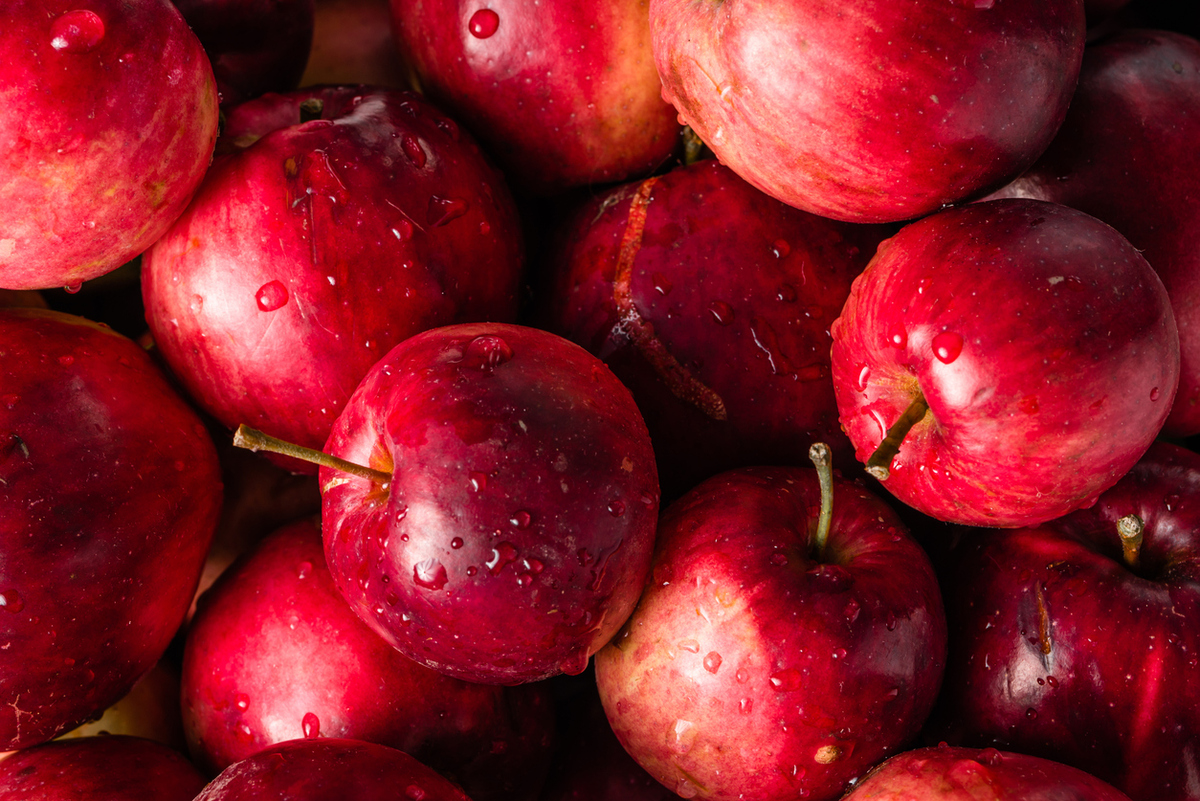
Scientists Use CRISPR to Enhance Aroma Quality of Apple
August 14, 2024| |
Researchers from Shandong Agricultural University in China used gene editing techniques to modify the fatty acid-derived volatile content and salt stress tolerance of apples. The results of the study, published in Horticulture Research, provide significant insights into improving the fruit aroma quality of crops under salt stress conditions.
Volatile organic compounds in plants act as signals to respond to pests, pathogens, and other environmental stressors. Apple is a commercial tree producing roughly 350 volatile chemicals as the fruit ripens. About twenty of these fall under the characteristic of apple aroma. The study focused on the ripening-related gene MdLOX1a and an abiotic stress gene MdASG1 to increase the production of volatile aroma compounds.
The results of the study revealed that the overexpression of MdASG1 resulted in a more salt-stress tolerant apple compared to the control group. The researchers also explored the role of ASG1 in volatile compound synthesis and higher levels of aroma compound accumulation under salt stress. The findings of the study open opportunities for developing high-quality apple fruits in moderate saline soil or conditions.
For more information, read the abstract and manuscript from Horticulture Research.
| |
You might also like:
- “Weeping” Gene and CRISPR Combo Can Boost Apple Fruit Production
- Apple’s Natural Defense Against Virus Very Similar to GM Mechanism
- U.S. FDA Approves Arctic® Fuji Apple
Biotech Updates is a weekly newsletter of ISAAA, a not-for-profit organization. It is distributed for free to over 22,000 subscribers worldwide to inform them about the key developments in biosciences, especially in biotechnology. Your support will help us in our mission to feed the world with knowledge. You can help by donating as little as $10.
-
See more articles:
-
Gene Editing Supplement (August 14, 2024)
-
Research and Tools
- Gene Editing of Grain Size Genes Leads to Better Rice Appearance and Yield
- CRISPR Offers Efficient and Stable Approach to Rapeseed Production
- Scientists Use CRISPR to Enhance Aroma Quality of Apple
- Review Shows Advancements in Gene Editing of Sorghum for Crop Improvement
-
Read the latest: - Biotech Updates (July 9, 2025)
- Gene Editing Supplement (June 25, 2025)
- Gene Drive Supplement (February 22, 2023)
-
Subscribe to BU: - Share
- Tweet

